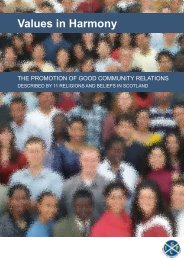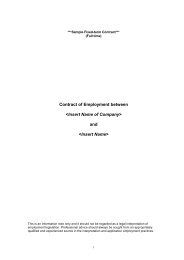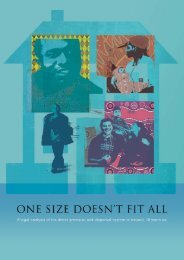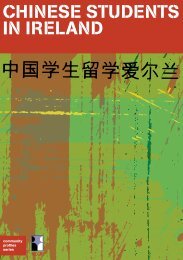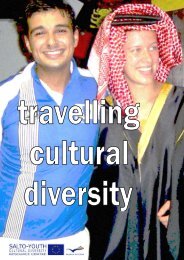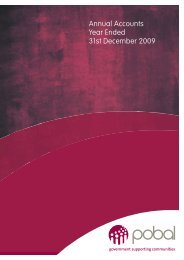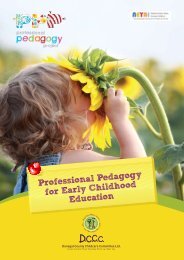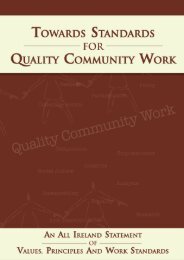Intercultural Education in the Post-Primary School - National Council ...
Intercultural Education in the Post-Primary School - National Council ...
Intercultural Education in the Post-Primary School - National Council ...
You also want an ePaper? Increase the reach of your titles
YUMPU automatically turns print PDFs into web optimized ePapers that Google loves.
3SCHOOL PLANNINGFormal and <strong>in</strong>formal policies and practices related to all <strong>the</strong> differentcomponents of <strong>the</strong> life of <strong>the</strong> school have a significant impact on <strong>the</strong>experience of students and o<strong>the</strong>r members of <strong>the</strong> school community. Theschool community develops an experience of, and positive engagementwith, cultural diversity through <strong>the</strong> policies and practices which shapeand make up <strong>the</strong> student’s total experience of school life.As such, <strong>in</strong>tercultural education extendsbeyond a narrow focus on <strong>the</strong> content ofclassroom teach<strong>in</strong>g. Us<strong>in</strong>g an <strong>in</strong>terculturalperspective when address<strong>in</strong>g <strong>the</strong> schoolplan is central to <strong>the</strong> effective developmentof an <strong>in</strong>clusive, <strong>in</strong>tercultural school.THE ROLE OF ALL THE MEMBERS OF THESCHOOL COMMUNITYIt is important that all <strong>the</strong> members of <strong>the</strong>school community, students, parents,teachers, support staff and managementare <strong>in</strong>volved <strong>in</strong> <strong>the</strong> collective responsibilityof develop<strong>in</strong>g and ma<strong>in</strong>ta<strong>in</strong><strong>in</strong>g an <strong>in</strong>clusiveand <strong>in</strong>tercultural school. One of <strong>the</strong>underly<strong>in</strong>g pr<strong>in</strong>ciples of successful schooldevelopment plann<strong>in</strong>g is goodcommunication between all members of<strong>the</strong> school community. While some of <strong>the</strong>actions aris<strong>in</strong>g from <strong>the</strong> plann<strong>in</strong>g processeswill be mandatory, for example, changes <strong>in</strong><strong>the</strong> school behaviour code or keep<strong>in</strong>grecords of racist <strong>in</strong>cidents, most of <strong>the</strong> realchange will depend on <strong>the</strong> voluntaryactions and goodwill of all <strong>the</strong> members of<strong>the</strong> school community. It will be important,<strong>the</strong>refore, that everyone <strong>in</strong>volved has <strong>the</strong>opportunity to have <strong>the</strong>ir views heard andfeel a sense of <strong>in</strong>volvement <strong>in</strong> <strong>the</strong> processof change. People may engage with <strong>the</strong>process with differ<strong>in</strong>g levels of enthusiasmand some may be somewhat resistant tocerta<strong>in</strong> <strong>in</strong>itiatives. It is not unusual forpeople to be surprised at some of <strong>the</strong>irown attitudes and beliefs as various issuesare discussed. Such resistance, handledsensitively, can provide a valuableopportunity to raise people’s awarenessand develop <strong>the</strong>ir <strong>in</strong>tercultural capacitiesand knowledge. It may provide an impetusfor staff to explore <strong>the</strong>se issues fur<strong>the</strong>r <strong>in</strong>tra<strong>in</strong><strong>in</strong>g aimed at develop<strong>in</strong>g a sense of <strong>the</strong>value and normality of diversity and atenabl<strong>in</strong>g <strong>the</strong>m to recognise and challengeunfair discrim<strong>in</strong>ation and racism.22<strong>Intercultural</strong> <strong>Education</strong> <strong>in</strong> <strong>the</strong> <strong>Post</strong> <strong>Primary</strong> <strong>School</strong>




